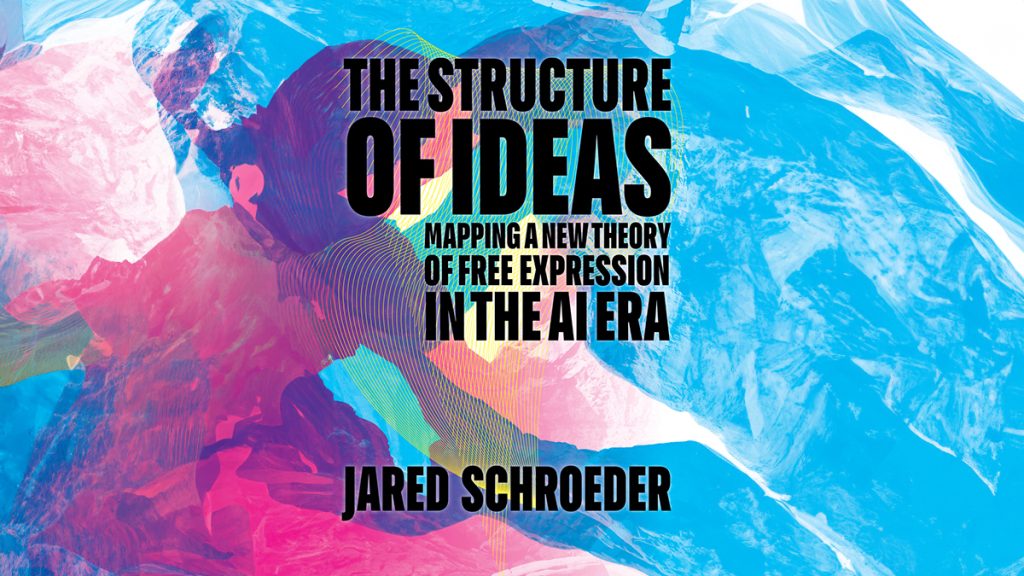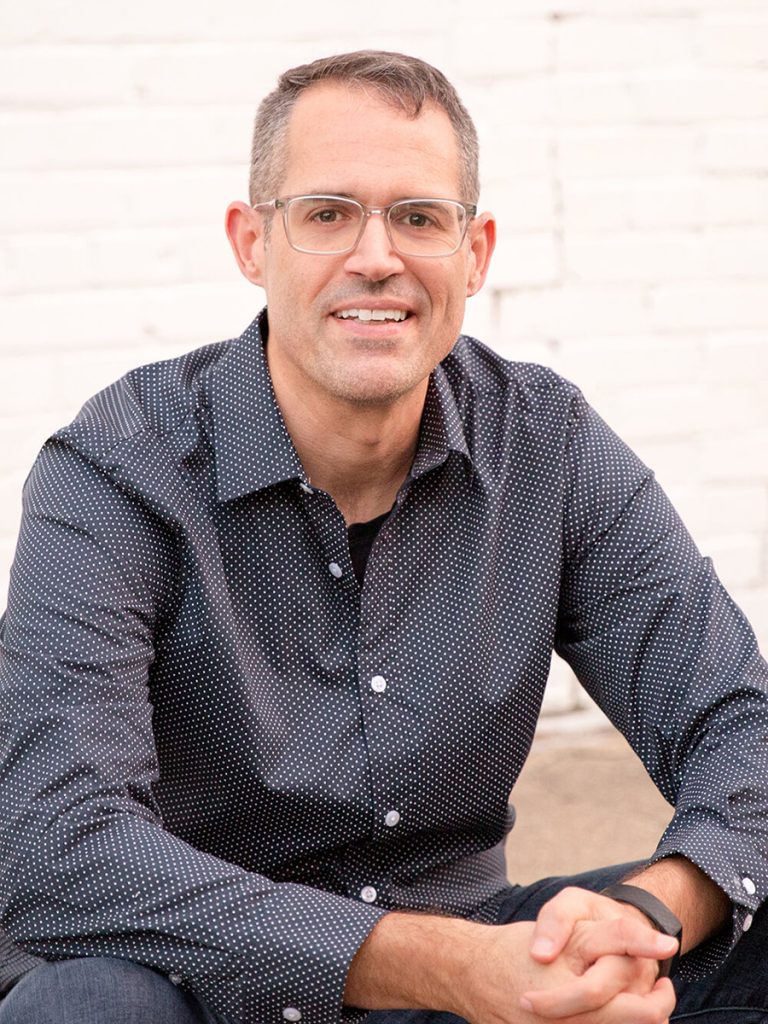Free speech in the age of AI

Jared Schroeder, an associate professor at the Missouri School of Journalism, has authored a book that explores new ways of thinking about free speech in the era of sophisticated generative AI. “The structure of ideas: Mapping a new theory of free expression in the AI era” is available July 1.
Schroeder is a member of the Reynolds Journalism Institute’s research team.

“Jared’s work accounts for the revolutionary impact of AI on how people communicate and gather information,” said Randy Picht, executive director of RJI. “It’s important that journalists understand this technology is not only changing the way they do their jobs but changing the very nature of communication. We are in a new era, and it will take innovation to help us find our way.”
Built on Schroeder’s research around the First Amendment, the U.S. Supreme Court and the history of thought surrounding free speech, the book argues for a reimagining of the “marketplace of ideas” that has guided America’s views on media, democracy and free expression for centuries.
At a time when the Supreme Court has made only glancing references to AI and the technology continues to go largely unaddressed in federal legislation, despite concerns about the potential for manipulated, false or “hallucinated” content and algorithmic biases, Schroeder makes the case that now is the time to chart a path forward.
“Our map for understanding discourse is no longer valid because of the changes in technology,” Schroeder said, noting that discourse can take the form of journalism, conversations in public forums like social media and just about any situation in which ideas are exchanged. “We have to re-map the space, and that’s difficult because it’s not a physical space. It’s a lot harder to explain what that means than it is to explain something like the Grand Canyon, which you can see right in front of you.”
A central tenet of the book — and a key principle he imparts to his students at the School of Journalism — is that this “space” in which discourse happens should be fluid, made up of norms and boundaries that change as society evolves. He notes that, like buildings in earthquake zones, any structure that is excessively strong and rigid will be the first to fall, while those built to move and flex when disaster strikes are far more effective.
Our map for understanding discourse is no longer valid because of the changes in technology. We have to re-map the space, and that’s difficult because it’s not a physical space. It’s a lot harder to explain what that means than it is to explain something like the Grand Canyon, which you can see right in front of you.
Jared Schroeder
Today, there is more than one earthquake: AI, social media, political polarization and the collapse of public trust in journalism and institutions are creating a highly unstable and unproductive space for dialogue.
“Right now, it’s a very rigid system that we’re in,” Schroeder said. “I don’t know that we’ll be able to have discourse if we don’t change. We need to have a conversation to see if we can create a better system that is more capable of handling something like artificial intelligence.”
To find such a system, Schroeder’s work looks back at the origins of the marketplace of ideas philosophy, which holds that the best ideas will win out in a competitive environment. From early proponent and Supreme Court Justice Oliver Wendell Holmes to oft-overlooked ideas from people like women’s suffrage reformer Jane Addams, he finds that the philosophies governing free speech have always been more fluid than most people realize.
“It’s not sacrilege to change something that has always been changing,” Schroeder said. “Even into the 70’s and 80’s, we were still changing the marketplace of ideas. But we’ve stopped going into that space and looking around, because the algorithms say, ‘you want this? Here it is.’”
Schroeder does not presume to definitively solve the problem in his book, nor does he aim to. Instead, the book is intended to spur people to view the country’s attitude toward speech through an open-minded lens, understanding that even the most foundational principles underpinning democracy are not, and have never been, immutable.
“I tell my students what we have is like a garden where certain things will live and die, and we’ll let them,” Schroeder said. “The European Union is more like a curated garden where they will trim the weeds and let the flowers grow. These are two different ways of thinking about free speech. We’re in conversation — this isn’t done, and it’s already different from 10 years ago.”
Updated: June 27, 2024